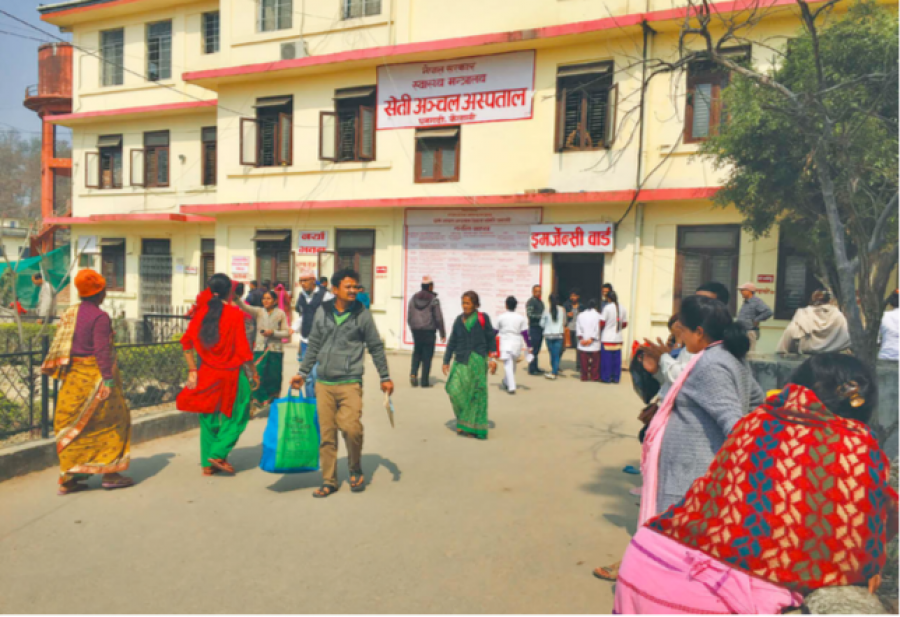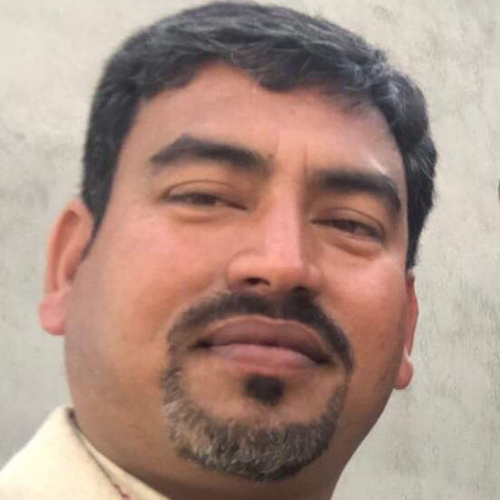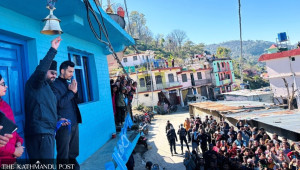Sudurpaschim Province
Sudurpaschim not prepared to tackle Covid-19 surge
The pandemic has only highlighted the poor health infrastructure in the province, say health workers
Arjun Shah
Hospitals in Sudurpaschim Province are struggling to cope with the surging number of Covid-19 patients.
The hospitals there struggle to provide necessary treatment to patients even on days when they are not overwhelmed with coronavirus cases. The pandemic has only highlighted the poor and mismanaged health infrastructure in the province, health workers say.
“Seti Provincial Hospital has only three ventilators. Ten other patients who need to be placed on immediate ventilator support are struggling for their lives. This is a coronavirus-specific hospital only in name. The infected are dying in front of us and we are helpless,” said Seema Sharma, the nursing in-charge of the hospital in Dhangadhi.
According to her, in the last four days, six coronavirus patients have died at the hospital.
“This is just the beginning of the second wave of Covid-19 and we are already struggling,” said Dr Nirajan Dutta Sharma, a consultant physician involved in the treatment of coronavirus patients at the hospital. “We have been facing this pandemic for the past year now. The concerned authorities had enough time to strengthen the health infrastructure in the province. But they wasted away the time during the lull period.”
A shortage of human resources is one of the major challenges faced by hospitals in Sudurpaschim. The provincial hospital was turned into a corona-specific hospital last year with a capacity of 55 beds. The health institution has three ventilators and 10 ICU beds. But there are only 11 nursing staff to run these services. The same 11 nurses are involved in the treatment of all Covid-19 patients.
According to the health standards set by the Ministry of Health and Population, a consultant physician, an anaesthetist, a general practitioner and two trained staff nurses are required to run one ICU bed and ventilator.
“Forget about following what is mandated by law, only nursing staff are deployed at Seti Provincial Hospital. Medical officers do not pay regular visits,” said Seema Sharma, the nursing in-charge.
“Out of 15 nursing staff, four have tested positive for coronavirus. If others get infected, the hospital will have to close down,” she said.
According to Dilip Shrestha, information officer at the Seti Provincial Hospital, the health institution is struggling to provide treatment to critical non-Covid patients as well.
Currently, 55 Covid-19 patients are receiving treatment at the hospital.
“Among them, three patients are on ventilators, 10 on ICU beds and 25 on supplemental oxygen,” said Shrestha, informing that 10 patients who are on oxygen support need ICU beds immediately. “But all ICU beds and ventilators are still occupied.”
According to the data of the Sudurpaschim Health Directorate, the total number of ICU beds in Sudurpaschim stands at 68. Among them, 27 beds and 11 ventilators are available for Covid-19 patients.
“ICU beds and ventilators are in operation in Dhangadhi, Mahendranagar and Dadeldhura hospitals,” said Hemraj Joshi, the health inspector at the Sudurpaschim Health Directorate. “Only six out of 11 ventilators are in operation due to a lack of human resources.”
Four ventilators are in operation in Dadeldhura Hospital. But two ventilators each in Bajhang and Achham districts are not in operation due to a shortage of staff. Narendra Singh Karki, spokesperson at the Ministry of Social Development, said, “Medical officers and nurses of all nine district hospitals are being trained at Seti Provincial Hospital to run ventilators and ICU. The three-day training had started on Sunday.”
According to DN Giri, an official at the Sudurpaschim Health Directorate, 258 individuals are staying in isolation units in various health facilities of the province. The province has a total of 751 isolation beds.
Meanwhile, the provincial office of the National Human Rights Commission has asked the provincial government to prioritise citizens’ lives during these unprecedented times. Mohandev Joshi, chief at the provincial office of the commission, said, “Current preparations are not enough. It will be difficult to save people’s lives with the current plans and preparations, or lack thereof, of the provincial government.”




 14.12°C Kathmandu
14.12°C Kathmandu















